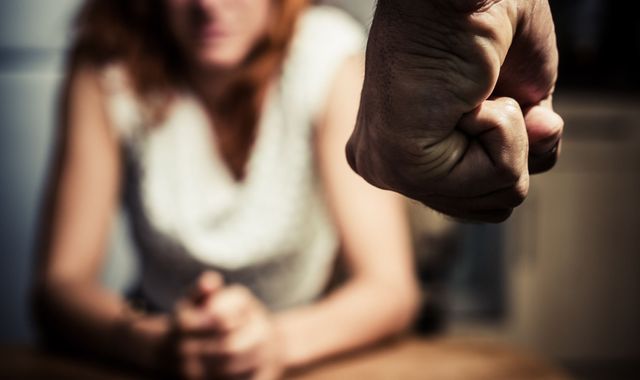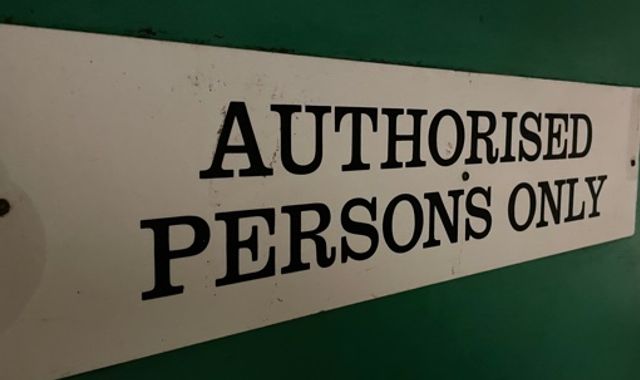Our experiences prove it’s vital all health workers can spot domestic abuse
Written by News on 10/08/2019
As Sky News reports that more than half of all patient-facing healthcare staff say they do not feel able to identify a domestic abuse victim, two women share their stories.


Laura, 50, from Manchester says her late mother Elizabeth, 72, had been beaten, raped and controlled by her stepfather over the past 40 years.
Laura is a safeguarding professional which meant she was able to step in to ensure her mother, who was in hospital after having a stroke, was protected from her abusive husband.
Laura explains why more must be done to protect vulnerable adults at risk of abuse or being returned into the care their abuser.
Names have been changed in this piece.
My mum’s story is quite a typical one of domestic abuse. She got divorced from my dad when I was quite young. He was her first love but was a ladies’ man. Upset and vulnerable, she met her second husband and I think she thought he was a safe bet.
He wasn’t abusive at the start but once they were married, the nightmare began.
The first clear sign was when he followed my mother on her hen night – but that was spun as flattery. By the wedding night he began hitting her.
I knew from a young age there was something wrong, but I didn’t know how to articulate it. The atmosphere in the house was toxic. You were always walking on egg shells with the tension thick enough to cut with a knife. His presence was insidious. I left as soon as I could, walking out the door when I was 16.
My mum was subjected to different forms of abuse from her husband. One time when I intervened he fractured my skull. My mother begged me not to press charges.
She lost her sense of self, identify and confidence.
This was in the 1990s before domestic abuse was viewed as a serious issue and when responses and resources were hit and miss. My mother was often in denial and other times was fearful, especially in the early days that he would make good his threat to kill us if she left. Towards the end she loathed him but could leave.
She had a stroke last year and we expected her to die within 24 hours. At the hospital he complained he would miss his tea. When the doctor raised the topic of whether they should resuscitate her, he shrugged his shoulders and left it to me. The doctor was visibly shocked.
When my mother was taken to her local hospital, I realised they weren’t going to pick up on the extent of the abuse and my mother, unable to speak, wasn’t able to tell them herself. I raised an adult safeguarding alert and told the staff she was a victim of domestic abuse. I informed her husband of this and he became hostile on the telephone and instantly began to minimise and deny what he had done.
Although he was no longer physically abusing her, he continued to be controlling and a risk.
I wonder how many women in stroke wards have been or are victims of domestic abuse and are unable to say “my abuser is going to become responsible for my care”.
Domestic abuse is a public health issue, the cost to services and the public purse are astronomical, and the cost to life and a lifetime of fear and misery cannot be counted.
The heath service is a universal service and will have victims passing through it daily, every contact matters and could potentially save or alter someone’s life for the better, making them less symptomatic and safer.
My mother took a raft of medication relating to stress, anxiety, depression and insomnia and had attempted suicide, crossing the path of staff multiple times. Training for all health staff is essential.
:: Warning: This report includes some injures that may be distressing for some readers
Rachel Williams, 47, from Newport in South Wales, was shot by her husband after years of abuse led to her filing for a divorce in 2011. Shortly after the attack, one of her sons took his own life.
She is now an activist and campaigner, fighting for greater support for domestic abuse victims and is organising what is thought to be Wales’ first survivor-led domestic abuse conference for survivors.
I was 21 when I met Darren. I was a single parent and he was charming, a good laugh and nothing stood out to be that he was going to be abusive.
The first vivid moment that something was wrong was a couple of months in after a friend mentioned an ex-boyfriend of mine in passing. As we walked home, Darren started calling me a slut and the next thing I knew I was face down in a patch of stinging nettles. When I confronted him the next day, he apologised and said he was just jealous because he was falling in love with me.
Domestic abuse often becomes more severe during pregnancy. When I was seven months’ pregnant we had an argument and he picked me up by my throat. He only let me go when my lips turned blue.
He was also controlling. When I was working as a hairdresser, Darren demanded that I only cut heterosexual women’s hair. He’d come into the salon and check who my customers for the day were going to be. He told me what I could and couldn’t wear, made me have short hair and banned me from colouring it.
I didn’t know what domestic abuse and coercive control was, I just thought the relationship wasn’t healthy. He made me feel it was my fault, when really it was him all along.
Darren shot me after I finally filed for divorce and reported him to the police. Over the days before the attack, he had tried to overdose, cut his wrists and strangled me – only letting go when the children called 999 and picked up a baseball bat to protect me.
I was at work and it was 2.20pm. I remember it going dark moments before it happened because something was blocking the sunlight. I looked up and Darren was in the door, pulling out a gun. I ran towards him and started trying to fight him off but he hit me with it. I fell to the floor and thankfully pulled my knees up beneath my chin.
I could see there was nothing in his eyes as he lifted the gun and shot me from only a few feet away; my leg blocking the bullet from my chest. As he shot me, he said he loved me.
He shot again but narrowly missed me, instead injuring people around me. I must have gained superhuman strength because I grabbed the gun and he couldn’t make me let go. Instead, he began beating me to a pulp.
By 7pm Darren was dead by his own hand and I had narrowly avoided having to have my leg amputated.
This was not the end. I was released from hospital on the 23rd of September and by the 26th, my 16-year-old son Jack killed himself.
There are those who say domestic abuse isn’t their problem. I disagree. It is everyone’s business. Domestic abuse is everybody’s problem.
(c) Sky News 2019: Our experiences prove it’s vital all health workers can spot domestic abuse







